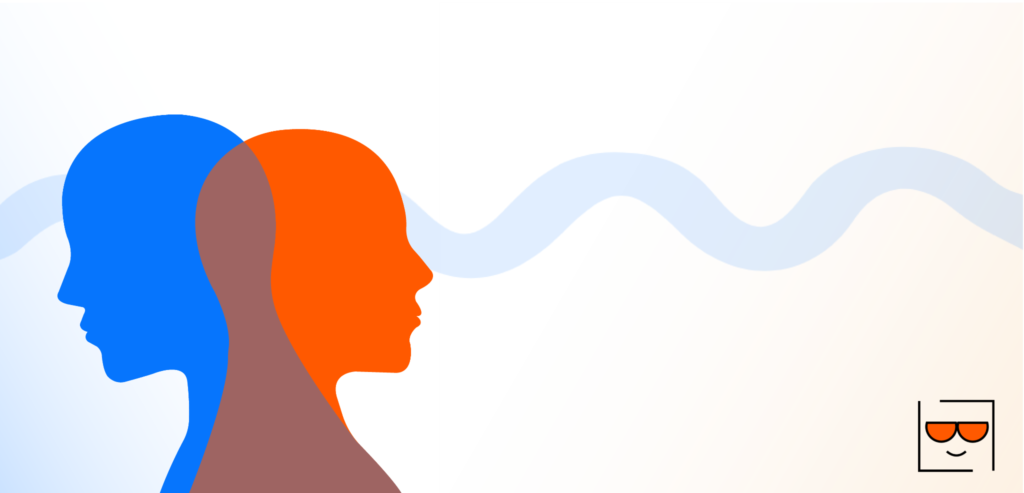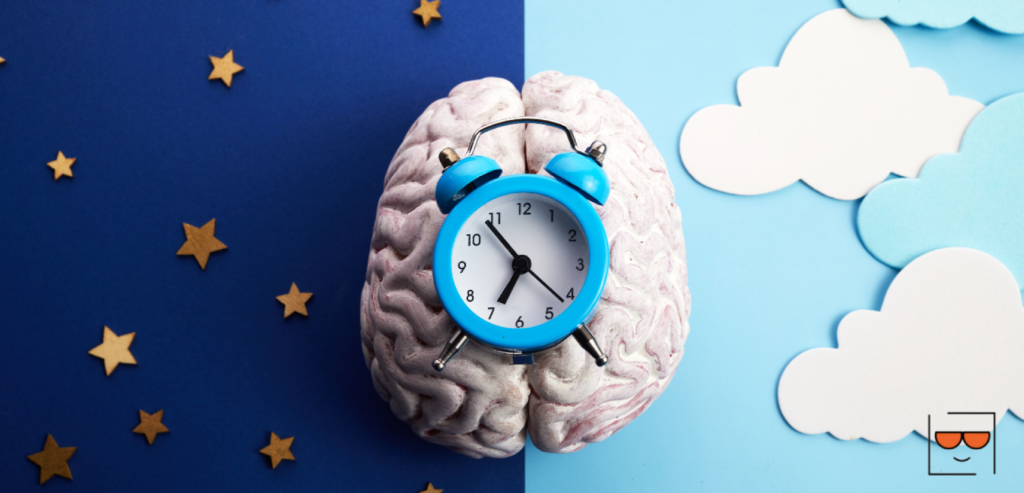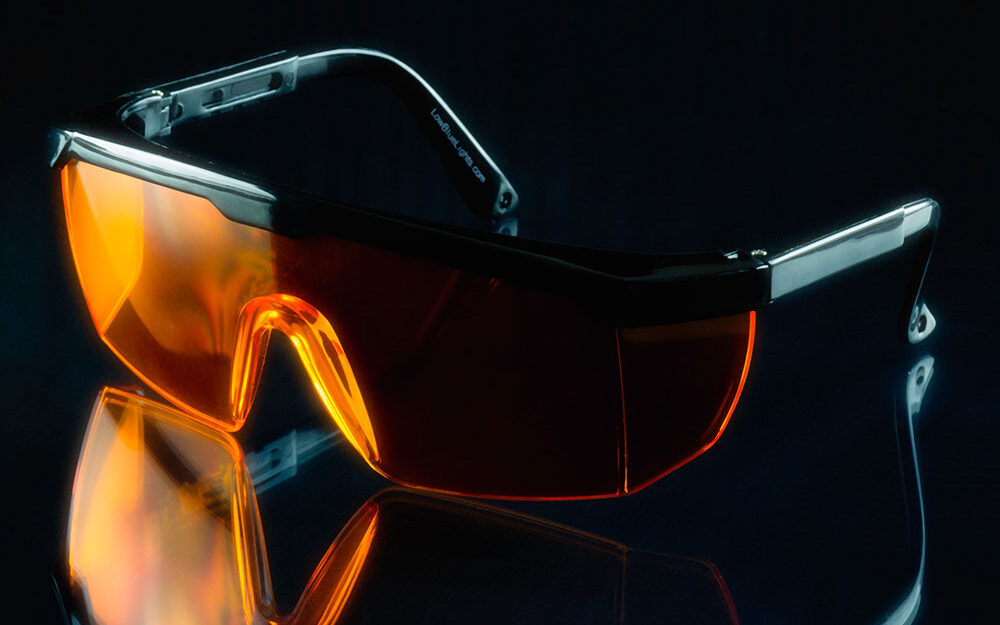
Individuals with bipolar disorder experience extreme shifts in mood from emotional highs known as mania to depression with periods of stability between episodes. These shifts in mood can result in sleep disturbance, including insomnia or sleep apnea. Consequently, difficulties sleeping can negatively impact their shifting moods, leading to manic episodes and creating a vicious cycle.
Although bipolar disorder is lifelong, managing mood swings and symptoms can often be treated with medications and psychological counseling. However, research is pointing in another direction by restoring natural melatonin production to improve the circadian rhythm and relieving episodes’ and their intensity.
What is Circadian Rhythm?
Our sleep-wake cycle runs on the daily rhythms of both natural and artificial blue light. So during the daytime, blue light suppressing melatonin production is a good thing. It helps promote wakefulness, allowing us to stay alert and think clearly during the peak hours of the day. However, once it begins to get dark, the reduction of blue light in the eyes signals to the brain that it’s night. The brain signals the release of melatonin, a sleep-inducing hormone produced by the Pineal Gland, to make you sleepy.

When aligned, the circadian rhythm can promote consistent and restorative sleep. However, the increased exposure to artificial blue light through digital devices and lighting at night will throw off the sleep-wake cycle. By exposing your eyes to blue light in the evening, the brain is still being signaled it is still day, suppressing the release of melatonin and shifting the phases of the sleep-wake cycle. Over time, exposure in the evening hours will reduce melatonin levels and create significant sleep problems, including insomnia, depression, seasonal affective disorder, and even bipolar disorder.
Blue Light’s Effect on Individuals with Bipolar Disorder
The increased exposure to natural and artificial blue light can be harmful to most individuals’ sleep-wake cycle, particularly those with bipolar disorder. Insomnia and irregular sleep patterns are common side effects due to the delayed, diminished, or suppressed release of melatonin from blue light. In addition, they often create a vicious cycle of sleep deprivation and disturbances triggered by manic and mania episodes.
Many with bipolar disorder feel that their sleep patterns are no longer in their control. However, research has proven that by regulating exposure to blue light and the timing of activities with blue light blocking glasses, individuals with bipolar disorder can drastically improve.
But do blue light blocking glasses work?
Blue Light Blocking Glasses & Bipolar Disorder
Blue light-blocking glasses may help prevent stimulation in the brain while also benefiting the production of the sleep hormone melatonin for those with bipolar disorder. A Norwegian study found that LowBlueLights’ blue light-blocking glasses allowed patients with bipolar mania to recover faster than the usual recovery period of several weeks.
Blue Light-Blocking Glasses Norwegian Study
The study consisted of 23 individuals who were hospitalized with bipolar mania. Half of the patients were randomly selected to wear our specially designed 99% blue light-blocking glasses (test group) after 6 pm until retiring for the night in total darkness. While in contrast, the placebo group was instructed to wear clear glasses. While in the study, both groups maintained their standard medical treatments and wore their assigned glasses.
According to the study, “a significant difference…between the blue blocker and placebo groups was apparent after three days of intervention…and continued to increase throughout the intervention.” Specifically, symptoms of “irritability,” “disruptive behavior,” and “language-thought disorder” decreased immediately in the group with LowBlueLights’ blue light-blocking glasses. While other symptoms, including “speech rate” and “psychotic content of thought,” continued to fall over time. In contrast, the placebo group had little to no improvements in symptoms throughout the study.
The study concluded that blue light is a major environmental factor in maintaining bipolar mania. But, more importantly, the study emphasized blue light-blocking glasses as a safe and efficient intervention that should be used in treatment efforts for bipolar mania.
How Do LowBlueLights Glasses Help with Bipolar Mania?
Blue light triggers special light receptors in our eyes to suppress the release of the sleep hormone melatonin resulting in a shift in the phases of the sleep-wake cycle. Those with bipolar disorder are particularly more receptive to the effects of blue light due to a mutation in the genes of their circadian clock. Therefore, many with bipolar disorder struggle with sleep continuing the vicious cycle of symptoms.
Consistent exposure to blue light from light bulbs and screens in the evening interrupts the natural production of melatonin and stimulates alertness. Therefore, blue light must be omitted in the evening hours to break the vicious cycle of symptoms of bipolar disorder.
Wearing LowBlueLights 99% blue light-blocking glasses allows the body to continue the production of melatonin to promote sleep and calm the overactive brain characteristics of bipolar mania.
LowBlueLights’ Blue Light Blocking Glasses

Blue light-blocking glasses, also known as sleep glasses, remove blue light from entering the eye and stimulating the body. The amber-tinted lenses crafted by LowBlueLights block up to 99% of harmful blue light rays.
Blue light-blocking glasses are effective when worn for 3-4 hours before bed combined with sleeping in complete darkness. This timeframe will allow the body time to start the melatonin production to encourage healthy, natural sleep.
Consistency in wearing the glasses each evening is key to regulating the circadian rhythm and supporting the body’s natural melatonin production.
LowBlueLights blue light-blocking glasses can help individuals with bipolar disorder improve sleep and symptoms when partnered with their recommended medical treatments.
For more information on how controlling light may improve sleep and reduce the risk for episodes of mania and depression, check out Dr. Richard Hansler Ph.D. book on Bipolar Disorder(s)
Ready to try Blue Light Blocking Glasses?
Start Blocking Blue Light Today!

 10% off Blue-Free Motion Sensing Light with Coupon Code BLUEMOTION10
10% off Blue-Free Motion Sensing Light with Coupon Code BLUEMOTION10